Friends of Acadia Partners to Provide Seasonal Housing Solutions
July 25th, 2023
July 25th, 2023
BY LORI SCHAEFER
Rachel Hartman feels incredibly lucky that she was hired by Acadia National Park as a seasonal law enforcement ranger this year. She was able to secure housing in one of the coveted spots in existing park housing.
Park officials informed Hartman when she interviewed that there was a severe housing shortage on MDI, and she knew she would not have been able to accept her dream job unless she secured housing.
“Being from Reno, NV, I’m incredibly thankful that the park could provide seasonal housing to me. Without park housing, I’m not sure how I would be able to work here,” Hartman said.
With only 93 bedrooms available in existing park-owned housing (81 bedrooms on MDI, 10 on the Schoodic Peninsula, and two on Isle au Haut), the other employees the park hires must fend for themselves in the local real estate market where long-term rentals have been disappearing as units are converted to more profitable weekly rentals.
It’s no secret there is a severe housing shortage on MDI and its surrounding communities.
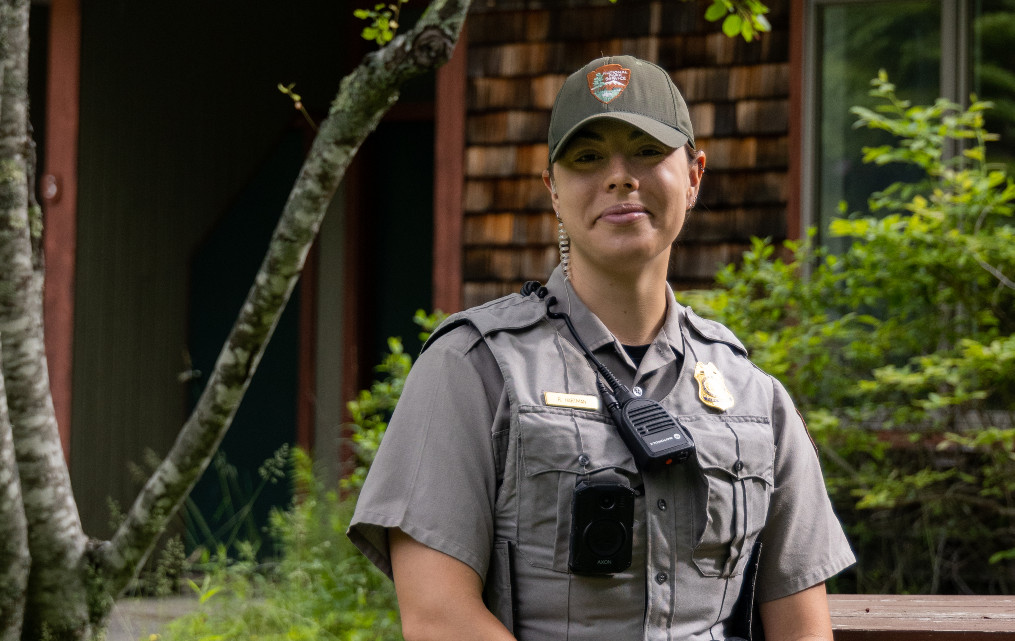
Rachel Hartman, seasonal law enforcement ranger at Acadia National Park, was able to secure
housing in one of the coveted spots in existing park housing. (Photo by Sam Mallon/Friends of Acadia)
For the past several years, the lack of affordable seasonal workforce housing has been a key factor in Acadia’s inability to fill its seasonal positions. And now, a tight labor market on top of the housing crisis is making it even worse.
This year, Acadia had funding to hire 165-175 seasonal employees and could only hire about 115 – a shortage of 50-60 employees. Two of the areas with the biggest shortages are maintenance of trails and carriage roads. Downeast Transportation – the operator of the Island Explorer bus service – is short about 40 bus drivers.
“Seasonal employees are essential to operating the park and providing visitor services from April through October,” said Park Superintendent Kevin Schneider. “And we simply do not have enough housing to support our desired summer seasonal workforce.”
When the park can’t hire enough staff to operate, it can limit Acadia’s ability to provide a quality visitor experience, care for cultural and natural resources, make progress on diversity and inclusion initiatives, keep up with trail and carriage road maintenance, and advance other strategic priorities.
That’s why Friends of Acadia has stepped up to help tackle the housing crisis head on.
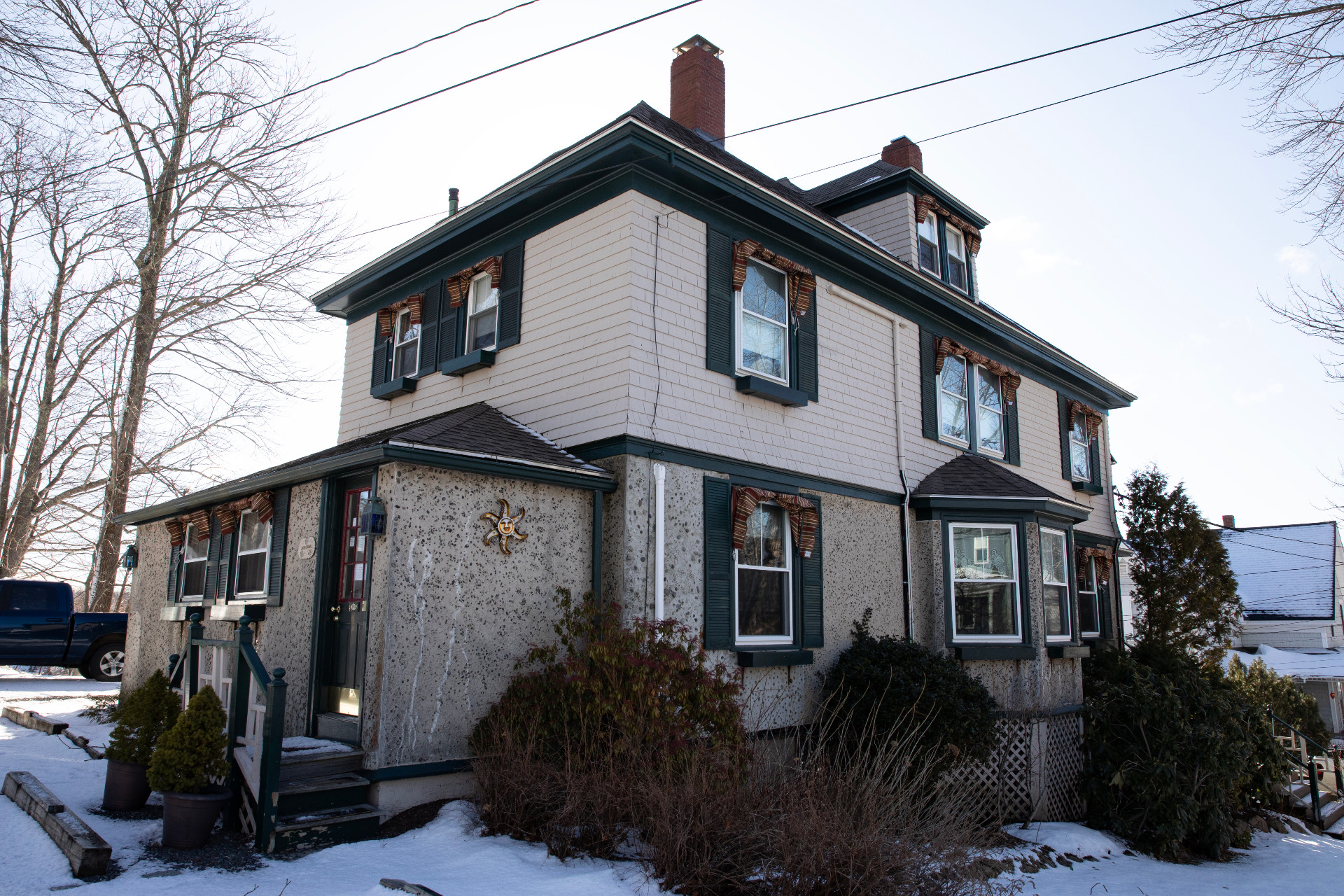
The former Kingsleigh Inn in Southwest Harbor will now provide seasonal housing for up to 10 employees. (Photo by Julia Walker Thomas/Friends of Acadia)
Friends of Acadia formed a Seasonal Workforce Housing Committee in late 2020 and last year developed a housing strategy with the goal of adding 130 beds for Acadia National Park and its partners over the next decade.
Friends of Acadia, in collaboration with Acadia National Park, hopes to achieve that goal using a multi-pronged approach that involves short-term, mid-term, and long-term actions, including:
1. Renovating existing park units to add bedrooms;
2. Purchasing commercial facilities like a B&B or motel;
3. Constructing new housing units on carefully selected sites within park boundaries; and
4. Adding more RV trailer pads to Acadia National Park campgrounds.
While the ultimate solution is to construct new housing units on NPS land that will have minimal impact on park resources and visitors, more immediate and interim measures are needed to help get there. It will take time to raise funds, complete design and planning, and build new units.
The good news: progress is already being made and there’s a bright ray of sunshine on the horizon.
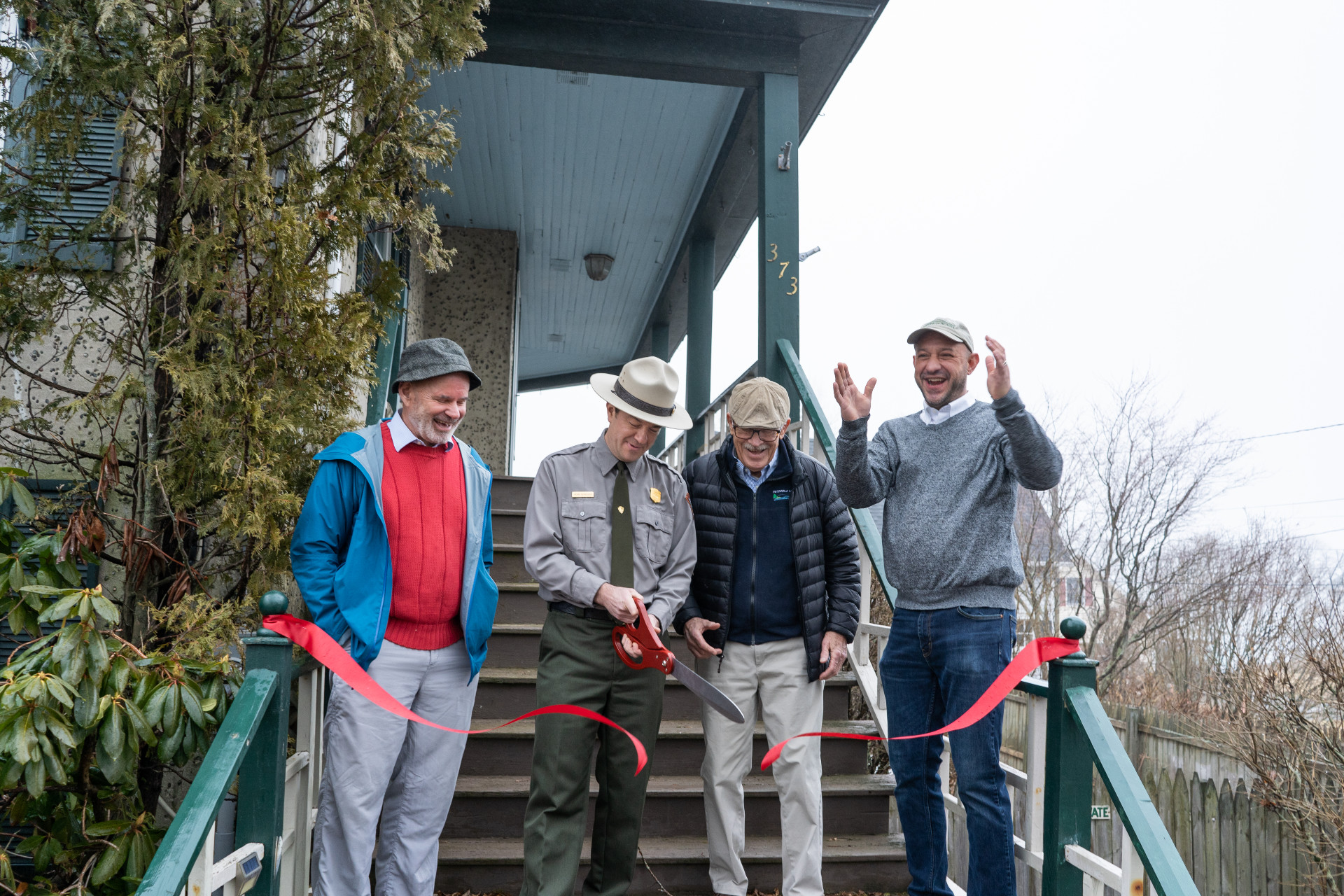
Ribbon Cutting at Kingsleigh Inn. (Photo by Gin Majka/Friends of Acadia)
Acting quickly, Friends of Acadia added 13 beds for seasonal workers.
Thanks to support from Friends of Acadia, a house the park recently acquired in Seal Cove was renovated, adding two bedrooms. Another house in Bar Harbor was renovated to add an additional bedroom. More renovations are planned in 2025 that will add another 5-7 bedrooms.
In March, Friends of Acadia purchased the Kingsleigh Inn in Southwest Harbor to house 10 more seasonal park employees.
Though Friends of Acadia owns the property, it is being managed and operated by Acadia National Park in similar fashion to existing park housing.
“By expanding housing options, the Kingsleigh property increases our capacity to recruit and retain seasonal staff members,” Schneider said at the time of the ribbon cutting. “We are incredibly grateful to Friends of Acadia for helping to support this need.”
Additionally, several Friends of Acadia members have stepped up to help house Friends of Acadia employees this season.
“We have five seasonal employees living in three different properties owned by Friends of Acadia members this year,” said Stephanie Ley, summit steward coordinator and member of the Friends of Acadia Seasonal Workforce Housing Committee. “Two of those are in properties owned by Pat and Bob Foster, who have been helping Friends of Acadia with seasonal housing for years. And we’re grateful to Jeff Sterba and Geri and Don Wagner who are new to the mix this year.”
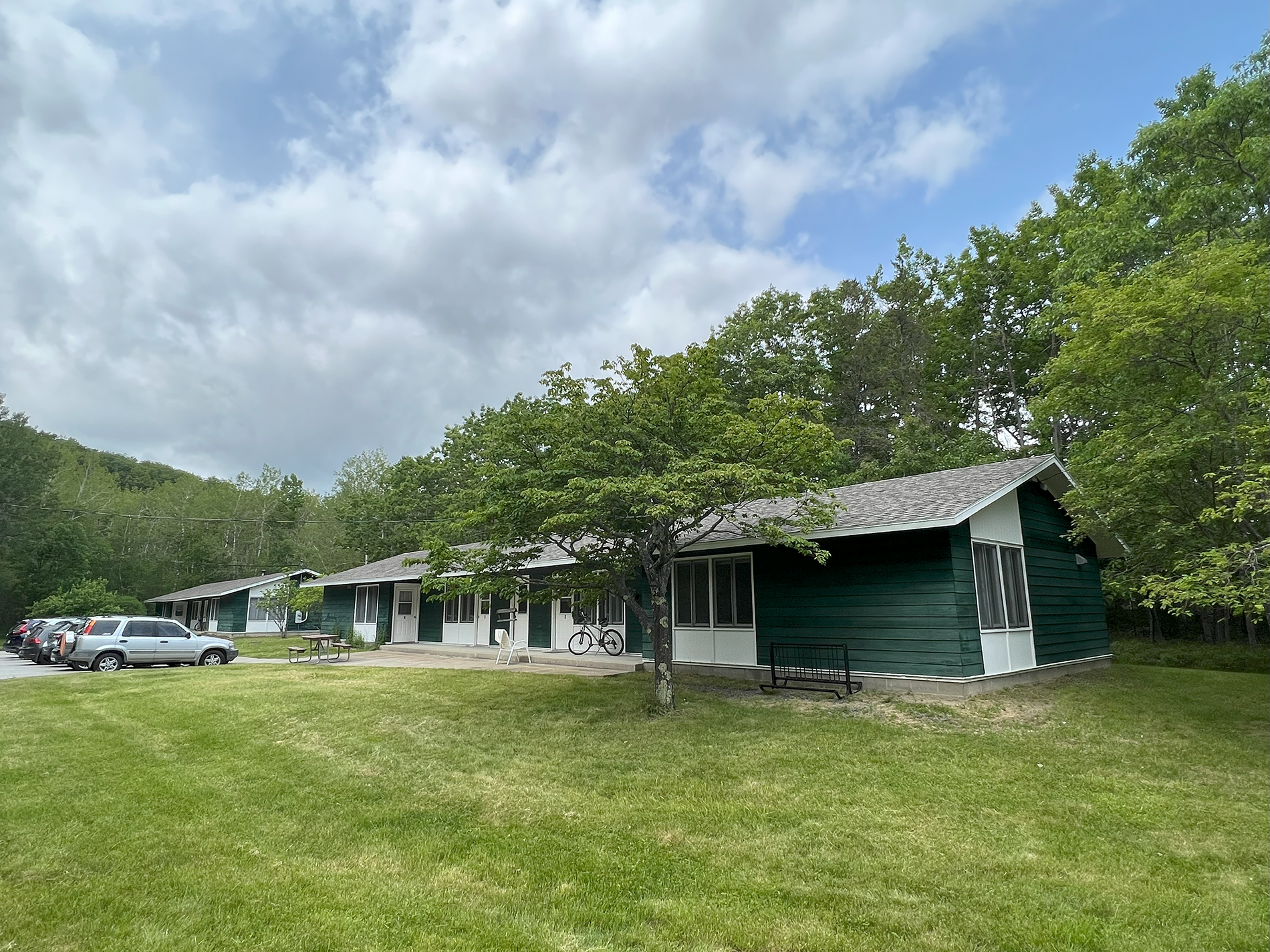
Current Acadia National Park housing at Harden Farm. (NPS photo)
Friends of Acadia is also exploring the purchase of a parcel of land from Seal Harbor Properties (members of the Rockefeller family) on Jordan Pond Road in Seal Harbor as a possible site for seasonal housing.
It is currently used as a storage pit by the owners and by the Land & Garden Preserve for gravel, stone, vehicles, and other materials.
Because the site is served by town sewer and water, has already largely been cleared and leveled, is reasonably removed from immediate neighbors, and provides easy access to Acadia, it appears to be a good fit for Acadia employee housing. Friends of Acadia reached out to residents from the area this spring to find out what questions, concerns, or suggestions they might have about the project.
The idea is to build housing for eight seasonal park employees – a primary residence with five bedrooms and an accessory dwelling with three bedrooms, as allowed under current zoning. No design contract had been awarded at the time this article was written, but the vision is that the design of the buildings blend into the surroundings, with a low profile and healthy setbacks from the road.
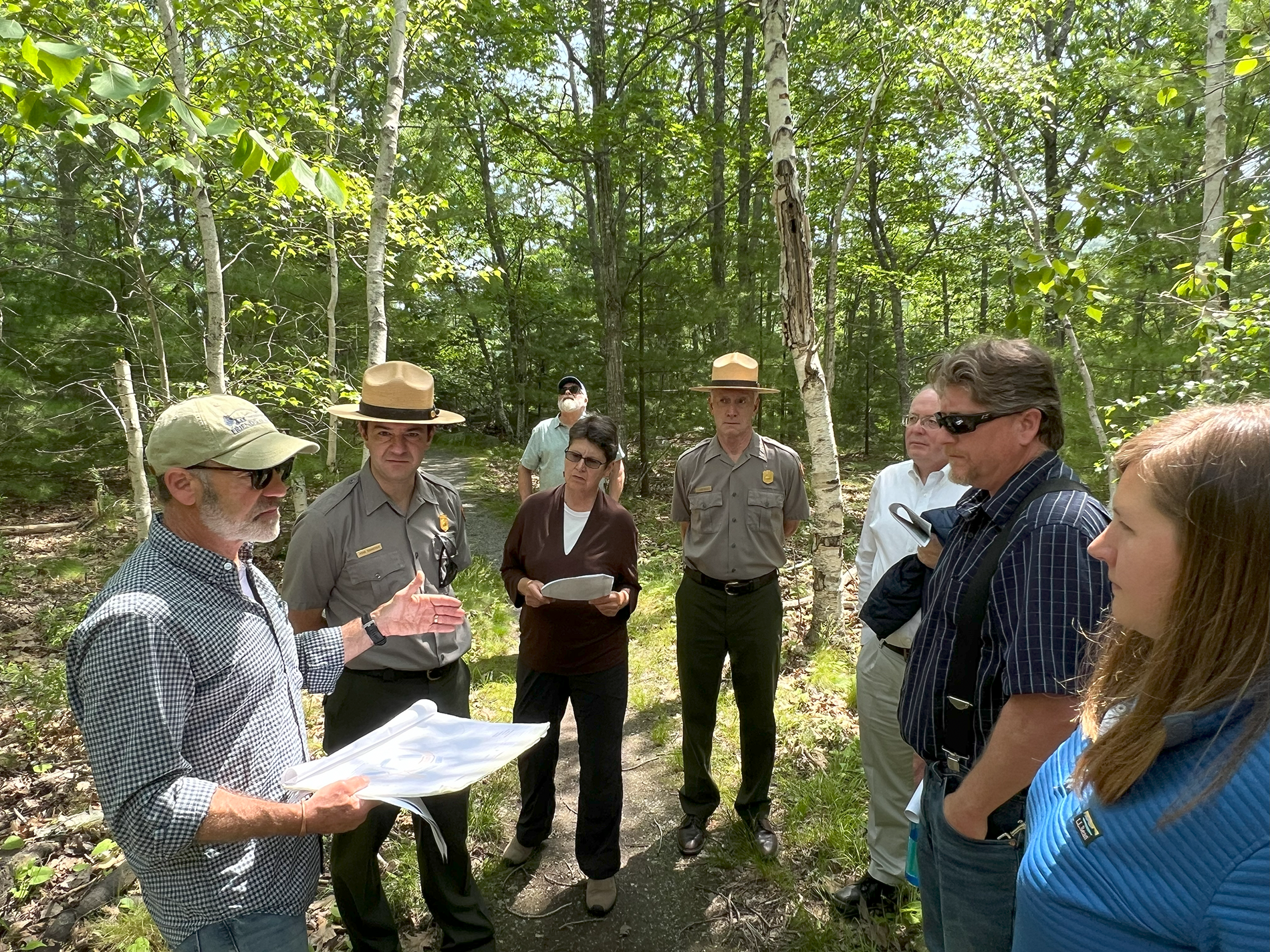
Friends of Acadia staff, board members, and Acadia National Park staff review the proposed site plan for new housing at Harden Farm. (Photo by Julia Walker Thomas/Friends of Acadia)
The housing crisis is not unique to Acadia National Park.
It’s an issue faced by many national parks across the nation. Friends of Acadia believes that federal funding and action is needed to help solve it, and is aiming its investments to attract, leverage, and maximize federal dollars.
Last July, National Park Service Director Chuck Sams visited Acadia and several board members joined park staff to share with the Director the urgency of the housing situation and the need for federal action. They also shared their hope that Acadia can become a national model for other parks and philanthropic partners to emulate.
At its June Acadia Advisory Commission meeting, the park announced that it has funding to hire a firm to design housing units to accommodate an additional 50-60 seasonal employees at its Harden Farm location just off Kebo Street in Bar Harbor.
The park already has eight one-bedroom apartments on the site, which has been identified since the 1960s as a location that could accommodate additional workforce housing without significant impact to park resources and values.
“The Harden Farm property is advantageous because we are building housing on existing park land as opposed to going into the community on land that could otherwise be available for others to build housing,” said Deputy Superintendent Brandon Bies at the Advisory Commission meeting.
Another property ripe for long-term development is a 55-acre tract in Town Hill. U.S. Senators Susan Collins and Angus King of Maine sponsored a bill that became law in December 2022 to change the intended use of this parcel so that it can be used for both park and workforce housing for the communities of MDI. The park will be working with the town of Bar Harbor and other stakeholders on the future of this site.
While the urgency around housing need is extremely high, this is a complex issue that will not be solved overnight. Year-round workforce housing is also a major issue and Friends of Acadia is committed to finding solutions that do not exacerbate the housing market on MDI and negatively affect working families trying to find year-round housing here.
“It will take all hands on deck to provide housing for our workforce on MDI and surrounding communities,” said Friends of Acadia President and CEO Eric Stiles. “In doing this work, we are not just addressing the housing problem, but also the equity issue. We’re removing a huge barrier to employment and helping to ensure that employment here remains available and affordable to all.”
LORI SCHAEFER is Friends of Acadia’s Vice President of Communications.
Read More
Finding a Place: Housing Challenges Impact Vital Work in Acadia